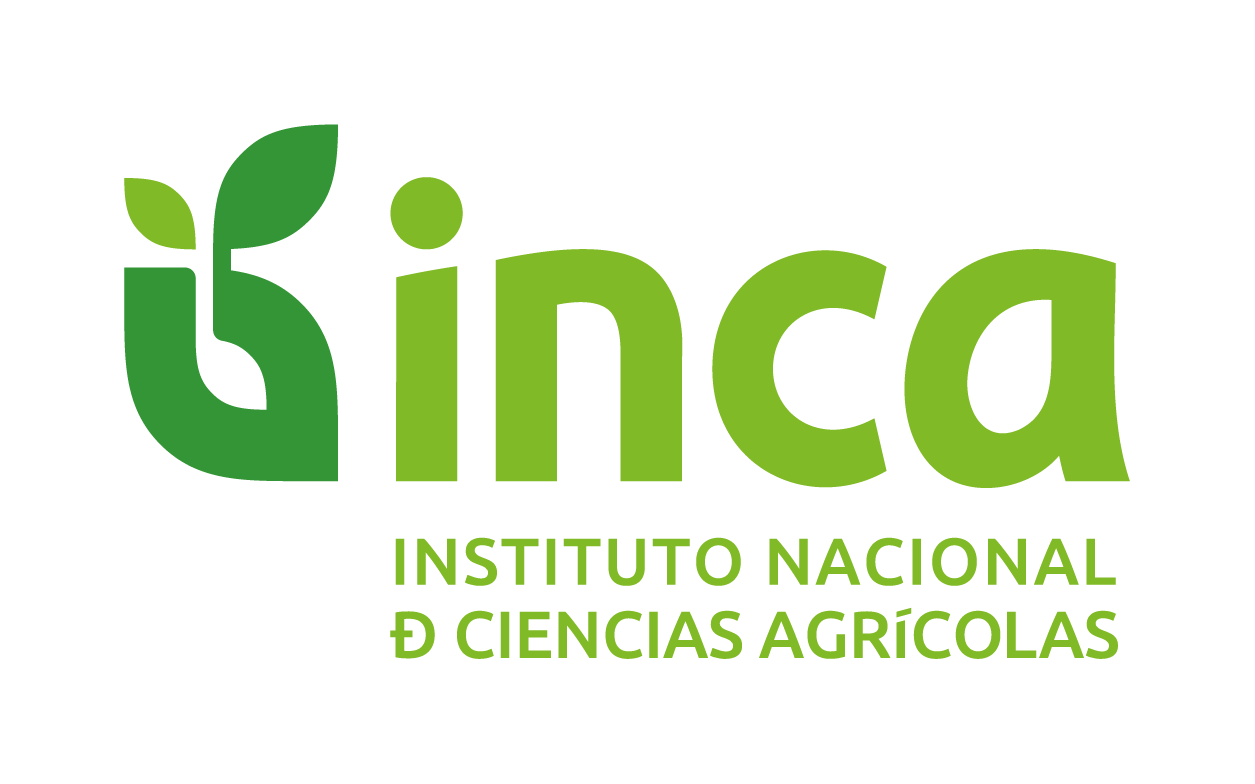
Journal «Cultivos Tropicales»
http://ediciones.inca.edu.cu
Ministry of Higher Education. Cuba
National Institute of Agricultural Sciences
INSTRUCTIONS FOR AUTHORS
Since 1979, the quarterly scientific journal «Cultivos Tropicales» has been issued by the National Institute of Agricultural Sciences (INCA), located in San José de las Lajas, Mayabeque, Cuba. Accredite by CITMA since November 22, 2007. It publishes nonedited articles, short communications, report of new cultivars and bibliographic reviews, with the results of agricultural investigations conducted in our institution and others of Cuba and abroad within the Tropics and SubTropics.
The end result of each article is available online in PDF, HTML and EPUB format (for mobile devices).
This journal is addressed to researchers, professors, specialists, technicians and students dealing with the agricultural branch, and includes themes as:
Sustainable Agriculture
Agroecology
Agromatics
Bibliotecology applied to the agricultural sciences
Biofertilizers
Agricultural Biotechnology
Edaphology
Abiotic stresses
Crop Physiology and Biochemistry
Agronomy
Crop Genetics and Breeding
Local Agriculture Innovation
Applied Mathematics
Plant Nutrition
Bioactive Products
Irrigation and Drainage
PEER REVIEW AND EDITING PROCESS
This journal is published either in Spanish or English, always with abstracts in both languages. Papers are firstly revised by the editor, so as to check if they fulfil the patterns established for graphs, pictures, tables and an exhaustive review of bibliographic citations and all data to ensure 100 % compliance with provisions of style rules. Once they have accomplished the requirements of our journal, papers are registered in the entry book to be further subjected to a blindly peer review, a process by which authors and reviewers remain anonymous up to the end.
ARBITRATION PROCESS DOUBLE-BLIND
Arbitration involves peer review by doctors or masters of science in our center and other domestic and foreign institutions, which have the power to reject or accept the job, performing all necessary revisions to agree with the arrangements made by the authors, taking into account the suggestions made by the reviewers in order to enhance and ensure the quality of publications. Authors and referees remain anonymous. Reviewers have 30 working days for the first review of each article; 15 days for the second and 5 days for remaining revisions. Authors have a period of 10 working days to make their first corrections and 5 working days for the rest of corrections.
PAPERS TO BE SENT
- Authors from INCA should send their text files on Word format, and a printed copy, after their papers have been approved and requested by the corresponding authorities to be published.
- Authors from other institutions should send:
- The essential author’s data are:
- full name and surnames
- scientific degree
- scientific category
- department
- institution
- postal address
- e-mail
Authors should be placed in descending order, according to their contribution offered at work, leaving explicit the percentage of participation of each.
Only they considered authors of the work substantially to those who participated in the conception of the idea and design of the study, acquisition or analysis of the data, drafting the article or its critical intellectual review. It may include those who participate in the final approval of the document to be published, provided that this person has a high experience in the field and has contributed or oriented in some of the above points, in that case you may be placed in the last post authorship.
Names of those who have provided technical support to the work or general supervision of the research group and institutions that provided funding for the research will be placed in the acknowledgments. Only substantial contributions will be appreciated, but the fulfillment of these conditions does not justify the scientific authorship.
The author is directly responsible have properly assigned the authorship and acknowledgments, as well as there are not “invited authors”. This practice, which disapproves the journal CulTrop.
- Images, pictures and graphs must be sent by separate files in their original formats and also inserted in word to show its location in the document.
- pictures and images in extension .jpg or .tif with a 300 dpi resolution or higher (good quality) (send in Spanish and English, independently)
- whereas graphs must fulfil the following requirements:
- Size: 8 or 16 cm
- Well defined axis lines (vigorous looking)
- Numbers, axis texts and footnote size 9 (no bold type)
- No three dimension, no pie charts
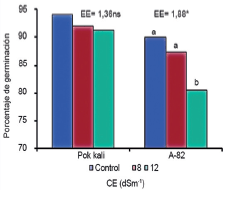
CONTRIBUTIONS STRUCTURE
Authors don’t be concerned about the format or type of letter, because on edition process it style is defined.
- will occupy up to 8 pages (after edited)
- title in spanish and english (up 15 words)
- authors (fulfilling the provisions)
- authors data
- abstracts(250 words each in both languages)
- up to five key words (in both languages)
- Introduction
- Materials and Methods
- Results and Discussion
- Conclusions
- Acknowledgements (if necessary)
- Bibliography (no less than 15)
- will occupy up to 3 pages (after edited)
- title in spanish and english (up 15 words)
- authors (fulfilling the provisions)
- authors data
- abstracts(250 words each in both languages)
- up to five key words (in both languages)
- with a similar structure to scientific papers
- should contain relevant information, even though it is repeated in time
- will occupy only 1 pages (after edited)
- title in spanish and english (up 15 words)
- authors (fulfilling the provisions)
- authors data
- abstracts(brief, in both languages)
- up to five key words (in both languages)
- introduction
- origin and description
- with no bibliography
- will occupy up 10 pages (after edited)
- title in spanish and english (up 15 words)
- authors (fulfilling the provisions)
- authors data
- abstract (250 words each in both languages)
- introduction
- conclusions
- bibliography (the necessary and the most possible updated
- with a similar structure to Bibliographic reviews
- must have the author criteria about the matter of paper
In all types of contributions, tables and figures should be sent translated into English as well as Spanish version.
OBSERVATIONS
- Keywords should be additional and different to those in the title, in an effort to avoid being repetitive and increase the dissemination possibility of the information presented in the article.
- For the selection of right keywords should be consulted-AGROVOC Thesaurus available on the website of Tropical Crops or enter directly to the page http://aims.fao.org/es/standards/agrovoc/functionalities/search, also in the libraries of each institution in its printed version.
- Tables should be numbered Romans numerals.
- Graphs should be numbered Arabics numerals.
- Tables and graphs must show results from the statistical analysis applied to data processing.
- Experiments should present every factor influencing its results, as well as its repetitions, the experimental design and statistical methods employed.
- The text should not repeat the information of tables and graphs.
- The units of measure are reviewed and adapted to the provisions of the International System of Units, we have placed information available at the link (http://ediciones.inca.edu.cu/files/recursosautores/sistemainternacionalmedidas.pdf).
To create a document correctly the authors have taken into account following aspects:
USE OF VERBAL TENSES
Keep in mind that each of sections should be written in:
- Abstract in past tense
- Introduction in present tense
- Material and method in past tense
- Results in past tense
- Discussion in present tense
- Conclusions in present tense
Characteristics of each section
Title
- It should be concise and able to make known the essential content of article to readers.
- Its maximum extension is 12 to 15 words.
- It should not be overcharged with information in form of abbreviations, symbols, parentheses, formulas, or unknown characters.
- It must not contain the article key words, nor should be double meaning or literary phrases.
- Remove subtitles and all nonspecific phrases (ex. Researches about…; Preliminary report, observations on…; Study of…; some interesting aspects about the knowledge…).
- Regarding the writing style, neutral and descriptive approach should be used. The alternative to present the title as a question is not considered valid by some experts.
- It is not recommended to use questions
Abstract
- The representation of the article content should be brief and correct.
- Authors should summarize in 250 words central topics within each of article sections in such a way that can establish, the interest, the problem and the aim of investigation; describing without details, chosen materials and used methods, summarize and highlight main findings, enunciating main conclusions.
- Authors should not make references to figures, tables and bibliographic references, and also do not include information that is not described in the article, or start with the working aim without having enunciated the problematic situation.
Introduction
- It will be brief, try using main keywords and it will go from the general to the particular.
- Authors must set the contextual framework in which the problem to be solved is inserted, what is known and what is unknown about the matter in question also, what it represents, economic, social, technological and research scientifically and the work objective, with which the work must be closed.
- Also authors can use the classic scheme of three paragraphs: in the first paragraph antecedents will be exposed, in the second because it is necessary, studying the problem and in the third, the aim.
Materials and Methods
- Must provide sufficient information so that they can repeat the investigation, avoid the verbiage.
- We must mention used materials that determined the obtaining of quantitative or qualitative data, not used instruments.
- In relation to methods we have to consider three possible options:
- When the method is standard, just mention and place the bibliographic reference, example: organic matter determination by Walkley and Black (1934).
- When the method is not standard, but it has been used previously: discussing why it proved necessary to use it and put the bibliographic reference where the method is described.
- When the method has been generated or adapted for the study: describe it completely or at least the changed part.
- This section of Materials and methods can be organized into five areas that include:
- Place: it indicates where the study has been made (productive entity, province).
- Design: it describes the experiment design.
- Population: it characterizes the sample besides its taking and selection.
- Interventions: it describes techniques, methods, measurements and units, pilot testing, equipment and technology.
- Statistical analysis: it marks outs programs and statistical used methods. Programs are referenced.
These subtitles used to denominate areas are freely selectable by the authors: examples General conditions, Treatments, Measurements, Statistical analysis.
Results and Discussion
Results
- Authors never have to show data that are not clearly related to the work objective.
- Research data are shown in figures and tables, which should be self explanatory and be marked with titles and legends.
- While table gives precision, figures provide a clearer social impact of treatment effects, interactions and trends.
Discussion
- The two central elements of discussion are indicated with neutral judgment and some speculation, what findings mean and how they relate to known ones until then.
- In the discussion should not repeat information data of figures and tables.
- Make clear principles, relationships and extrapolations that could be derived from results (speculations) .It should be noted exceptions.
- Indicate results and interpretations of them are agreed or come into conflict with other evidence in the literature.
- Present the work theoretical implications and practical applications that could have.
Conclusions
- It should highlight main data implications obtained in the research and do not make a statistical count of shown values.
- In all cases they must always be justified by presented data.
- It should not make reference to figures, tables and bibliographic citations.
Bibliography
For the settlement of citations in the text, footnotes page and references you should preferably use the CLS processor that contains the style of the magazine and you can settle automatically the bibliography of presented papers. CLS style called the Tropical Crops available sites (sitios van aqui) (paragraph resource for authors) and installing it directly into your bibliographic manager use the address (sitio) CLS is sharing for a wide range of bibliographic managers of recognized preference and international importance as, Zotero, Mendeley, ACS Chem worx Desktop, BibSonomy, Bielefed University Library´Katalogo.plus!, colwiz, CrossRef, digi-libris Reader, Docear, Drupal, Fidus Writer, Islandora, Jekyll, Logos, Multilingual Zotero, pandoc, Peperpile, Papers, Qiqqa, ReadCube, Refeus, Talis Aspire and WordPress (Kcite and Zotpress plugins).
Once the work is published, a reprint in PDF is sent by email to the author, which will be a comprehensive review within five business days, send us your suggestions if necessary and conformity of publication.
The journal assignment agreement provides rights to authors of all articles published in it, both in print and electronic version included Internet.
CREATION OF LIST REFERENCES
In addition to the above instructions, the authors who publish in this journal should adapt their list of references according to the style adopted by our Editorial. The journal Cultivos Tropicales decided to change the bibliographic style and to adopt the specifications established in the manual of Vancouver CulTrop style for the treatment of the bibliography.
Characteristics of the bibliographic style
The main characteristics of the adopted bibliographic style are described below, but to know more about it is recommended to consult the manual available at: https://www.nlm.nih.gov/bsd/uniform_requirements.html. In any case both for the management of the citations in the text and the bibliographical references should be used the CSL style citation processor available at: http://www.zotero.org/styles/vancouver.
In the management of sources of scientific information, authors should bear in mind the following considerations:
- The scientific articles will have at least 15 bibliographical references since since 2008 the average of references by articles of the magazine is of 22 (http://analytics.scielo.org/w/publication/article).
- In the preparation of contributions, articles published in scientific journals should preferably be used since, since the year 2015, 72,30 % of the bibliography used in the documents published by Tropical Cultures is constituted by this type of document.
- Other sources of scientific information such as books, book chapters, norms and patents, legal resources, scientific or technical reports that have been published, articles in conferences (congresses and workshops) that have published at least the memoirs of the event , Maps, satellite images, computer programs, statistical sites such as FAOSTAT and those of the national statistical and information offices of each country, and theses as long as the results achieved in the same have not been published so far. Neither unpublished documents nor the references to footnotes are allowed.
- Each job must comply with the Price index; That is, 60 % of the documents cited must be from the last five years. Bibliographical reviews and reviews are exempt from previous requirements, since the author must include all the works that he considers relevant within the time range of evolution of the subject in question. Self-citations, both by the author and the journal, should not exceed 20% of the literature consulted. In all cases only the references of the works cited in the text will be annotated.
- Within the text is cited in numerical form, eg: (1). If the quotation is composed of multiple sources, they must be separated by commas and without space, eg: (1,2). When more than two citations are used in a single multiple source, the first and last numbers are separated by a dash, eg (1-5).
- Under this style manual it is not necessary to place standard identifiers such as the ISSN or ISBN, although it is recommended to place the DOI as long as it has been assigned to the reference used.
- The names of the authors are placed in the short form and the only punctuation mark used is the comma “,” to make the delimitation between authors, eg: Paneque PVM, Calaña NJM, Calderón VM.
- When the cited document presents more than six authors, “et al.” is placed after the sixth. See example article in scientific journal.
- All miscellaneous used in the formation of references are in English, eg “Available from:”, “cited”, “#st ed”, “editors”, among others; In addition to the dates of publication and consultation.
- When referring to articles in scientific journals, book chapters, or a section of a report, the range of pages should be collapsed as long as the first number (s) of the home page coincide with the final page, eg p. 15-9, p. 1035-39.
- Page numbers should always be offered together with the miscellaneous “P.”. if a complete work is referred to as a book, a thesis or a report, the miscellaneous “p.” must be suffixed, eg 157 p., but when referring only to a section of a complete work such as book chapters and report parts, the miscellaneous “p.” is prefixed, eg: p. 151-95.
- When the resource consulted is online, the miscellaneous “[Internet]” after the title, in addition to the date of consultation in English language and the complete electronic address, eg:1.
Paneque PVM, Calaña NJM, Calderón VM, Borges BY, Hernández GTC, Caruncho CM. Manual de técnicas analíticas para análisis de suelo, foliar, abonos orgánicos y fertilizantes químicos [Internet]. 1st ed. La Habana, Cuba: Ediciones INCA; 2010 [cited 2016 Jan 27]. 157 p. Available from: http://mst.ama.cu/578/.
Examples of permitted bibliographic reference types:
Articles Published in Scientific Journals:
- Falcón AB, Cabrera JC, Costales D, Ramírez MA, Cabrera G, Toledo V, et al. The effect of size and acetylation degree of chitosan derivatives on tobacco plant protection against Phytophthora parasitica nicotianae. World Journal of Microbiology and Biotechnology. 2007;24(1):103-12. doi: 10.1007/s11274-007-9445-0.
Books:
- Paneque PVM, Calaña NJM, Calderón VM, Borges BY, Hernández GTC, Caruncho CM. Manual de técnicas analíticas para análisis de suelo, foliar, abonos orgánicos y fertilizantes químicos. 1st ed. La Habana, Cuba: Ediciones INCA; 2010. 157 p.
Chapters of books:
- Rivera R, Fernández F, Fernández K, Ruiz L, Sánchez C, Riera M. Advances in the Management of Effective Arbuscular Mycorrhizal Symbiosis in Tropical Ecosystems. In: Hamel C, Plenchette C, editors. Mycorrhizae in Crop Production. Haworth Food & Agricultural Products Press; 2007. p. 151–95.
Articles in conferences (Congresses, Workshops):
- Cervantes BR, Marvin PK, Cid LG. Uso del modelo Breakdown and Distribution of Aggregates para la caracterización físico-estructural edáfica. In: VIII Congreso de la Sociedad Cubana de la Ciencia del Suelo. La Habana, Cuba: Instituto de Suelos - Sociedad Cubana de la Ciencia del Suelo; 2015. p. 184.
Scientific or technical reports:
- Cagirgan MI. Mutation techniques in sesame (Sesamum indicum L.) for intensive management: confirmed mutants [Internet]. Vienna: International Atomic Energy Agency (IAEA); 2001 [cited 2016 Jan 13] p. 31–40. Report No.: IAEA-TECDOC--1195. Contract No.: IAEA-7855. Available from: http://inis.iaea.org/Search/search.aspx?orig_q=RN:32007911.
Patents:
- Freepons DE. Plant growth regulators derived from chitin [Internet]. United States; US4964894 A, 1990 [cited 2017 Apr 9]. Available from: http://www.google.com.cu/patents/US4964894.
Maps:
- Sánchez HEA. Nuevo atlas nacional de Cuba [Internet]. 1st ed. La Habana, Cuba: Instituto de Geografía de la Academia de Ciencia de Cuba-Instituto Cubano de Geodesia y Cartografía; 1989 [cited 2016 Oct 27]. Available from: https://www.amazon.com/Nuevo-atlas-nacional-Cuba-Spanish/dp/8478190074.
Computer program:
- Di Rienzo JA, Casanoves F, Balzarini MG, González L, Tablada M, Robledo CW. InfoStat [Internet]. Version 2001. Córdoba, Argentina: Grupo InfoStat; 2001. Available from: http://www.infostat.com.ar/.
Thesis:
- García A. Efectos fisiológicos del déficit hídrico inducido en fases tempranas del crecimiento de plantas de arroz (Oryza sativa L.) y su aplicación en la selección de variedades tolerantes [Tesis de Doctorado]. [Mayabeque]: Instituto Nacional de Ciencias Agrícolas; 2009. 132 p.
If you are interested in publishing in our journal, you should strictly fulfil all these requirements
Managing postulation of articles for the journal can be operated through the OJS, advanced software under an (Open Journals System).
For delivery of your items, you must first access the site http://ediciones.inca.edu.cu/ and perform the following steps:
1. Register
2. Fill all fields and at the end mark the item author.
3. Register
4. New Book (sending a new article)
5. Follow the five steps to send Article
If you have difficulty in submitting the manuscript, send your article to the email:
revista@inca.edu.cu
nadia770309@gmail.com
nadia@inca.edu.cu
eduleymedina@gmail.com
edulia@inca.edu.cu
You can consult the requirements of the journal at the following link:
http://ediciones.inca.edu.cu/index.php/ediciones/pages/view/autores
For more information, please contact us:
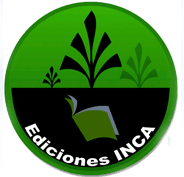
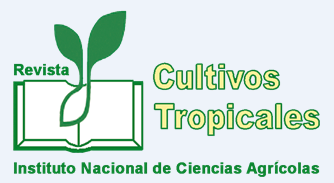
email: revista@inca.edu.cu
http://ediciones.inca.edu.cu
AUTHOR’S RIGHTS
“Cultivos Tropicales”It is supported by the legal rules of the Creative Commons type
“Attribution-Noncommercial-ShareAlike 4.0 (CC BY-NC-SA 4.0)”
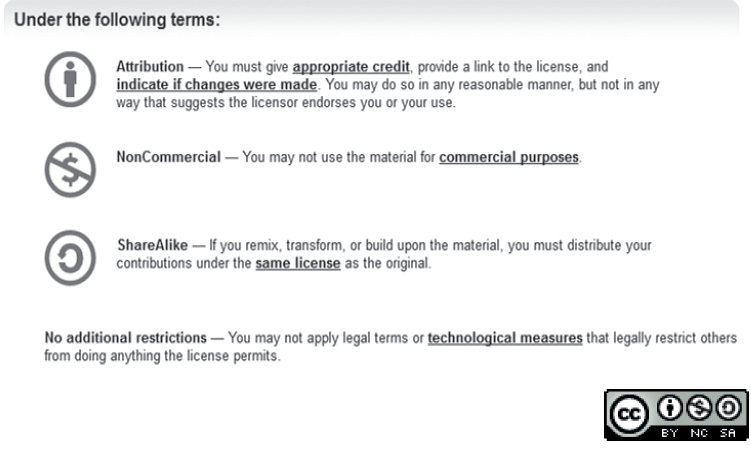
For more information about the journal licence pleople should check the complete legal code in this address:
https://creativecommons.org/licenses/by-nc-sa/4.0/
